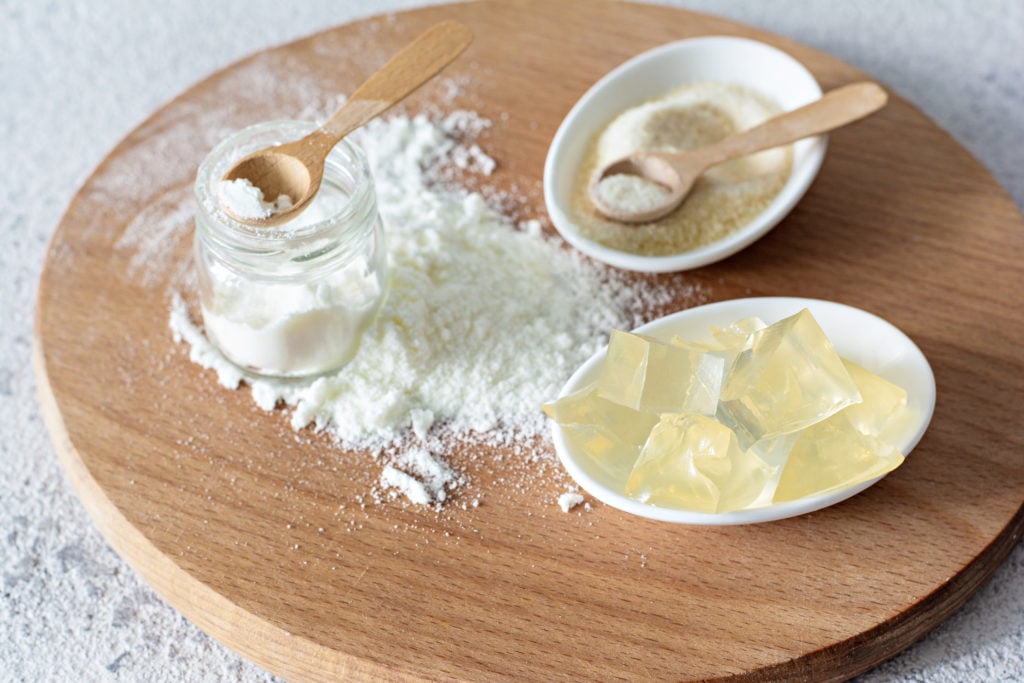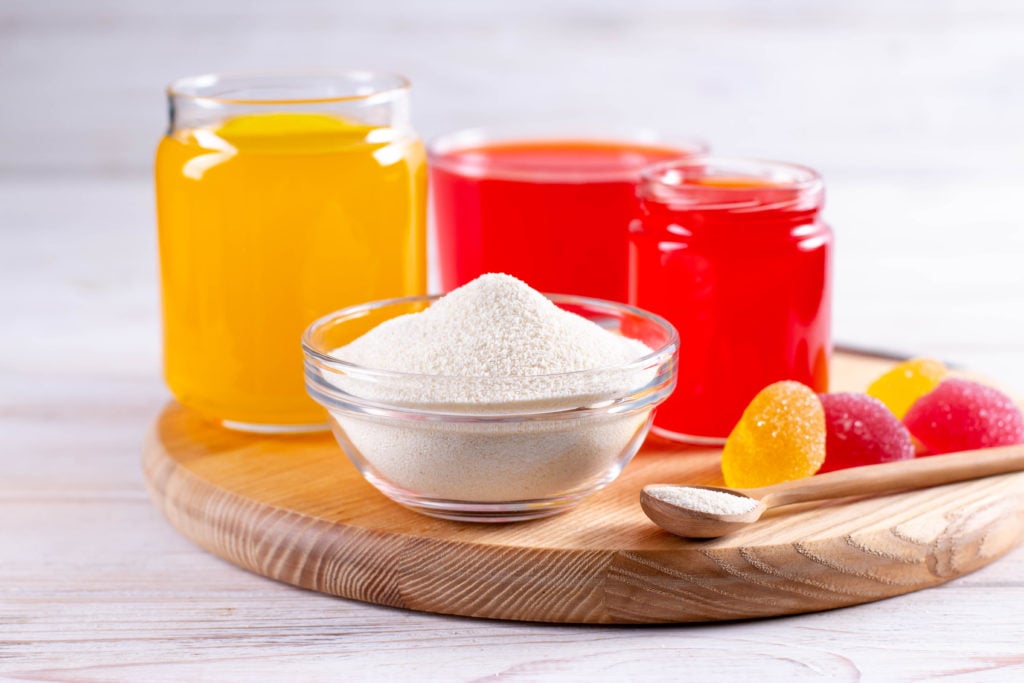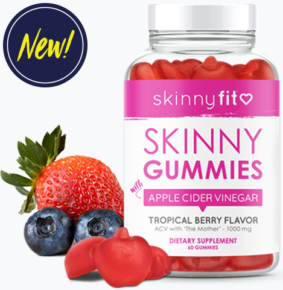Whenever I hear gelatin, I think of the strawberry-flavored, race car-shaped Jell-O that my aunt and I used to make. It amazed me how a hot steaming pot of sugar could turn into a dancing blob of deliciousness. One day, after taking a bite of what very well could have been my hundredth race car, I asked my aunt what made the liquid turn so wiggly. “Gelatin,” she said! Flash forward 20 years and gelatin is making headlines getting whipped into coffee, making homemade marshmallows, and more. When I think of gelatin, I only think of Jell-O. So it made me wonder–is gelatin good for you?

What Is Gelatin?
Before even answering “is gelatin good for you”, let’s first answer, “what is gelatin”. Gelatin is a colorless, odorless protein derived from collagen. It’s made from various animal parts, and helps to form or bind things, almost like a natural glue. This is why it’s found in foods like Jell-O and candy. It’s also found in savory foods, like bone broth, where it’s naturally occuring. If it’s not been made clear–gelatin is NOT vegan or vegetarian. Though highly processed, it’s source is a variety of animal parts.
What Is Gelatin Made Of?
As mentioned, gelatin is made of animal parts–namely the skin, bone, cartilage, and connective tissue. This is very off-putting for a lot of people, and it’s not fun to visualize. However, because of the way that it’s processed, you would never know unless someone told you! Most packages of gelatin do not mention their source. Gelatin that you buy at the store is in powder form, and it’s essentially undetectable that it’s sourced from animals. This is one of the many reasons people choose to opt for gelatin alternatives (which we’ll get to!). Plus, there are a few unfavorable side effects of gelatin that also turn people off to using it or purchasing products with it in them.
Uses Of Gelatin
Gelatin is commonly used as an emulsifier in food, and helps add both volume to the item and create a smooth texture. It also helps add a small amount of protein to whatever you’re making, and is found in many recipes, such as:
- Soup
- Bone broths
- Marshmallows
- Gummies
- Jell-O
- Smoothies
- Juice
Gelatin is also used as a thickening agent in various cosmetics and pharmaceuticals, such as:
- Makeup
- Medication
- Supplements

Gelatin Side Effects
While it may seem like an animal-derived protein source would be generally good for you, let’s dig a little deeper into the question, “Is gelatin good for you?” It is a common ingredient in both food and makeup, so it seems like it would be a safe ingredient to use. However, there are some common side effects of taking gelatin that are worth hearing about. Some of the most common side effects of consuming gelatin, even in small doses, are:
- Bloating
- Upset stomach
- Burping
- Allergic reactions
There is a small percentage of people who are allergic to gelatin, and should not consume products that contain it. This includes products other than food, such as makeup and medications containing gelatin.
Healthy Gelatin Alternatives
If gelatin doesn’t agree with your stomach, there are plenty of other binding and thickening agents that are vegan. These are even more common than gelatin thanks to their animal-friendly sources, and less disruptive effects on the stomach. If you don’t want to or can’t take gelatin for any reason, here are some of your options:
-
- Agar agar powder—Agar agar is a commonly used gelling agent. It’s naturally occurring, and derived from seaweed. It’s often used in place of gelatin because it provides a very similar, smooth texture.
- Locust bean gum—Also known as carob gum, locust bean gum is derived from the carob tree. It’s native to the Mediterranean, and contains a ton of dietary fiber. You can easily find locust bean gum in foods like ice cream, condiments, cereals, and more.
- Pectin —If you’ve ever made homemade jam or jelly, you’ve likely heard of pectin. It’s one of the most common binding and thickening agents in food. It’s popular because it’s liquid, making it easier to incorporate into a variety of foods. It’s a natural soluble fiber found in different fruit peels and vegetables, also making it attractive to vegans and vegetarians. This is the thickener used in Skinny Gummies! It’s a vegan-friendly apple cider vinegar gummy that can help control appetite. Most gummy vitamins use gelatin as their binder, making it non-vegan and, for some people, difficult to digest.
- Arrowroot powder—Derived from the arrowroot plant itself, arrowroot is a type of starch. The starch is another natural, vegan alternative to gelatin. It’s great for thickening liquid recipes rather than firm ones, such as marshmallows.
Mentioned In This Post
Skinny Gummies
If you’re looking for a quick and delicious way to get the incredible benefits of apple cider vinegar, you’ll love Skinny Gummies! These tropical berry ACV gummies help you burn fat and get glowing skin!
